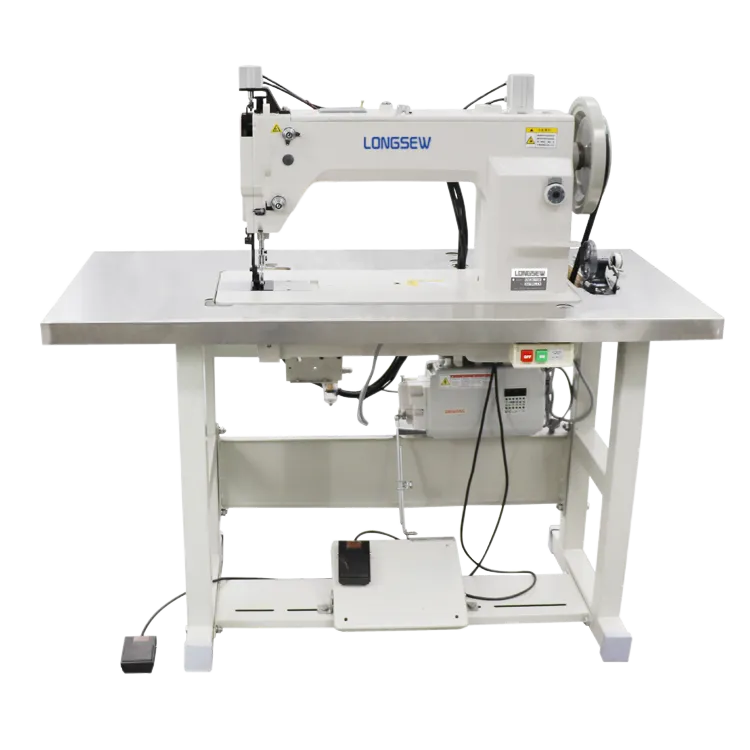Best Sewing Machines for Heavy Fabrics Comprehensive Guide for Seamstresses and Tailors
The Importance of Heavy Fabric Sewing Machines in the Textile Industry
Heavy fabric sewing machines are essential tools in the textile industry, particularly when dealing with materials that require extra strength and durability. These machines are specifically designed to handle thick fabrics such as denim, canvas, upholstery, and other heavy textiles that standard sewing machines struggle to sew. Understanding the significance of heavy fabric sewing machines can help both home sewers and industrial manufacturers achieve the desired quality and efficiency in their sewing projects.
What Are Heavy Fabric Sewing Machines?
Heavy fabric sewing machines differ from regular sewing machines in their construction and capabilities. They often feature a stronger motor, more robust components, and special needle designs to penetrate dense materials with ease. Typically, these machines can sew multiple layers of fabric, making them ideal for projects like making tents, outdoor gear, heavy-duty clothing, and home furnishings.
Additionally, heavy fabric sewing machines come with features that cater to specific sewing needs, including walking feet, extra-large presser feet, and variable stitch options. These features allow for better fabric handling, preventing slipping and ensuring even stitching, which is crucial when working with thick materials.
The Benefits of Using Heavy Fabric Sewing Machines
1. Increased Durability Heavy fabric sewing machines create strong, long-lasting seams that can withstand stress and wear. This durability is essential in industries like automotive and marine upholstery, where fabric is subjected to extreme conditions.
2. Versatility While primarily designed for heavy materials, many heavy fabric sewing machines can also handle lighter fabrics. This versatility allows sewers to work on a wide range of projects without needing multiple machines.
heavy fabric sewing machine

3. Time Efficiency The powerful motors and specialized mechanisms of heavy fabric sewing machines enable faster sewing speeds without sacrificing quality. This efficiency is particularly beneficial for manufacturing settings where time is of the essence.
4. Ease of Use Many heavy fabric sewing machines are designed with user-friendly features, such as automatic tension adjustment and simple threading systems. These make it easier for users, regardless of skill level, to achieve professional results.
Choosing the Right Heavy Fabric Sewing Machine
When selecting a heavy fabric sewing machine, it is essential to consider factors such as the type of projects you plan to undertake, your budget, and your sewing experience. Look for machines that offer adjustable speed settings, multiple stitch options, and additional features like built-in walking feet to handle varying fabric thicknesses effectively.
Brands that specialize in heavy-duty sewing machines include Singer, Juki, and Brother, each offering models that cater to different needs and preferences. Reading reviews and user feedback can also provide insights into how well a machine performs with heavy fabrics.
Conclusion
Heavy fabric sewing machines play a vital role in the textile industry, allowing for the creation of durable and high-quality products. Whether you're a hobbyist looking to tackle a challenging project or a professional in need of a reliable machine, investing in a heavy fabric sewing machine can elevate your sewing experience. With their unique features and capabilities, these machines not only enhance the quality of your work but also open doors to new creative possibilities in sewing.
-
Leather Sewing Machine: The Industrial Standard for Tough MaterialsNewsJul.18,2025
-
Sail Making Machine: Heavy-Duty Stitching for Industrial and Marine NeedsNewsJul.18,2025
-
Sling Sewing Machine: The Backbone of Heavy-Duty FabricationNewsJul.18,2025
-
Leather Sewing Machine: Precision for Heavy-Duty StitchingNewsJul.18,2025
-
Big Bag Sewing Machine: Powering the Future of Bulk PackagingNewsJul.18,2025
-
FIBC Sewing Machine: Essential Equipment for Bulk Bag ProductionNewsJul.18,2025
-
Heavy Duty Leather Sewing Machine: A Must-Have for Professional LeatherworkNewsMay.28,2025





























